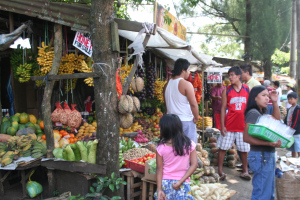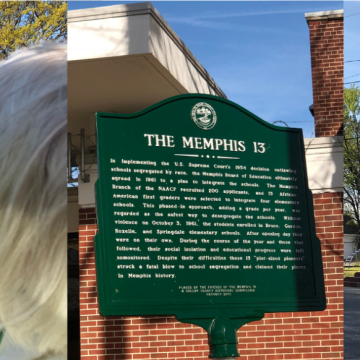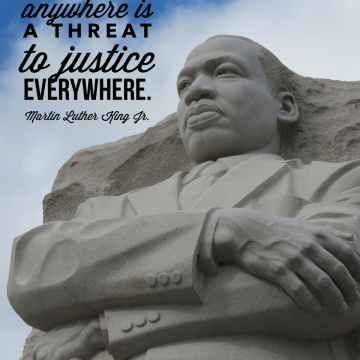Today is World Food Day and I’m counting myself lucky.
- Lucky because I have fresh fruits and vegetables in my refrigerator.
- Lucky because my idea of hunger is a momentarily bodily response and I’ve never had to experience true hunger.
- Lucky because some folks generations ago decided to leave their home land and head west for a place where land was highly productive. And those generations before sacrificed to make things better for those to come later.
- Lucky because I have real choices everyday.
I’ve been lucky enough to travel fairly broadly (though not nearly as much as I would like). And in my travels I’ve seen people and places who would love to have the abundant, safe food supply millions in the US take for granted every day. Among some of my greatest food lessons and venues: 
- Fresh, in-season food rocks — If you are in The Philippines at the right time, you can do like me and enjoy the most incredible tasting mangoes everyday. And mangoes are just one of the many awesome fruits you can have. Take a look at that fruit market!
- Diversity is incredible — Seeing that market photo again reminds me that not all environments have so many options. The one that comes to mind most rapidly for me was Russia, and I say was cause I was there years ago and I’m hoping things have changed. I was there in May, a time where in Memphis I could begin getting lots of early summer fruits and vegetables. Even though I was at a similar latitude, that wasn’t what I found in Russia. I found I was there in cucumber season. There were cucumbers at every meal. Granted the chefs were creative, but lots of cucumbers at breakfast, lunch and dinner added up to frustration after a few weeks. My guess is the reason people have a negative impression of borscht (which can be incredibly tasty) is that it was the staple food in Russia and other Eastern Bloc countries because beets grew so well there they were something that grew in great number in those climates and were able to be stored well.
What my personal travels has shown me is there is a very deep gulf in food production and availability in various world areas. And today I take time to add my thoughts to the solution. I do not think there is a single answer nor a single problem. Lots of things have to be changed. The world populations make it incredibly hard for everyone to live in the most optimum food production areas. This means we need to find ways to make food available to people in various world areas. Let me state here clearly, I DO NOT want to make the world a monofoodculture — I don’t think we should subject others to Wonder bread (though I do love the smell from that bakery).
Some of the biggest issues are:
- Low production of suitable crops — This is where breeding efforts for things like cassava, etc have the potential to make a boost. There are many public programs. For instance in the US several USDA and state extension programs have breeding efforts. Globally, CGIAR has an extensive network that crosses crops including IRRI for rice (a past post), CIMMYT is engaged in corn and wheat (check their blog). Small, local companies are breeding crops like the bitter gourd in The Philippines are on that track (see past post) and there are also companies like my employer Monsanto working globally (here’s an overview of breeding from the company’s site if you are interested).
- Potential to broaden crop geography — Breeding efforts like those above also have the possibility to broaden the areas where a crop could be produced. For instance, when I started in the cotton business, there was a small area of Oklahoma where farmers could produce the crop. With the introduction of shorter-season varieties, farmers in more areas of Oklahoma & even into Kansas can choose that crop. Most people can most easily connect to the idea by the breeding efforts in tulips or other flowers we plant in our yards.
- Freedom of choice on the farm — Choices among crops and technologies are some of the things I’ve heard from farmers. I should not be the one to decide how a farmer runs his business; however, I should make my preferences known by encouraging the types of products, productions practices, etc that I stand behind. I do this with both my wallet and by speaking up. I would like to point to a blog post about his participation in the World Food Prize events as Darin included some information about what other farmers think.
- Infrastructure drawbacks — The horror stories of crops going to ruin because there wasn’t transportation or adequate highways or river systems is deplorable. And there is no intelligent reason things like that can’t be fixed. The issue is at times that we have some stupid and at times mean people too.
Those are just top of mind thoughts. I’d be glad to continue the discussion later though. What are your thoughts?



I enjoyed your post today especially because the Columbus Dispatch has done a three day feature on how the farmers pollute the waters of Ohio because of runoff. While that may be in part factually true, we all need the agricultural industry and by our decisions promote a narrow profit margin and because of that reality we may not be able to do everything we know how to do. The article failed to mention where the 40% remaining “pollution” is coming from. It also failed to convery the breadth and scope of the issue. Finally, there was fear mongering with comments like … may cause cancer, possibly can cause cancer, suggestive of cancer cause etc…. As a nurse, there are so many others things that we do know are carcinogens, it causes me get concern when the media types create this kind of hype because of a bias in the story.
Thanks Mary! The criticism can get to all of us at times. To me that’s part of why its so important to tell the real story of agriculture & farming. It’s a lot like the rest of life…. I believe we need to admit mistakes when they are made but we deserve credit too. LOTS of credit.